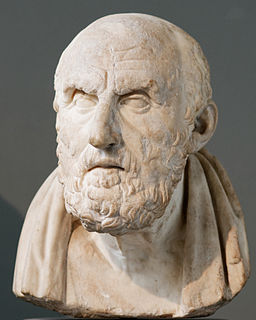A Quote by George Bernard Shaw
Related Quotes
This tree is indeed a Tree of Life, for without the higher and finer sentiments man does not life; he merely exists. If any branch of that tree does not bear fruit, the Master tells us that it shall be cut off and cast into the fire. It is the duty of all living things to produce some truly constructive labor as recognition of the divine life which is within them. God is most glorified when His children glorify His spirit within themselves.
The nobler sort of man emphasizes the good qualities in others, and does not accentuate the bad. The inferior does the reverse. . . . The nobler sort of man pays special attention to nine points. He is anxious to see clearly, to hear distinctly, to be kindly in his looks, respectful in his demeanor, conscientious in his speech, earnest in his affairs. When in doubt, he is careful to inquire; when in anger, he thinks of the consequences; when offered an opportunity for gain, he thinks only of his duty.
Every man is proud of what he does well; and no man is proud of what he does not do well. With the former, his heart is in his work; and he will do twice as much of it with less fatigue. The latter performs a little imperfectly, looks at it in disgust, turns from it, and imagines himself exceedingly tired. The little he has done, comes to nothing, for want of finishing.
From the latter he is defended by being well armed and having good allies, and if he is well armed he will have good friends, and affairs will always remain quiet within when they are quiet without, unless they should have been already disturbed by conspiracy; and even should affairs outside be disturbed, if he has carried out his preparations and has lived as I have said, as long as he does not despair, he will resist every attack.
It is God's earth out of which man is taken. From it he has his body. His body belongs to his essential being. Man's body is not his prison, his shell his exterior, but man himself. Man does not "have" a body; he does not "have" a soul; rather he "is" body and soul. Man in the beginning is really his body. He is one. He is his body, as Christ is completely his body, as the Church is the body of Christ
An Athenian citizen does not neglect his state because he takes care of his own household; even those of us who are engaged in business have a very fair idea of politics. We do not regard a man who takes no interest in public affairs as harmless. We do not say that such a man 'minds his own business'. Rather we say he has no business here at all.
Rememberest the gods, and that they wish not to be flattered, but wish all reasonable beings to be made like themselves; and... rememberest that what does the work of a fig-tree is a fig-tree, and that what does the work of a dog is a dog, and that what does the work of a bee is a bee, and that what does the work of a man is a man.
Violence harms the one who does it as much as the one who receives it. You could cut down a tree with an axe. The axe does violence to the tree, and escapes unharmed. Is that how you see it? Wood is soft compared to steel, but the sharp steel is dulled as it chops, and the sap of the tree will rust and pit it. The mighty axe does violence to the helpless tree, and is harmed by it. So it is with men, though the harm is in the spirit.






































